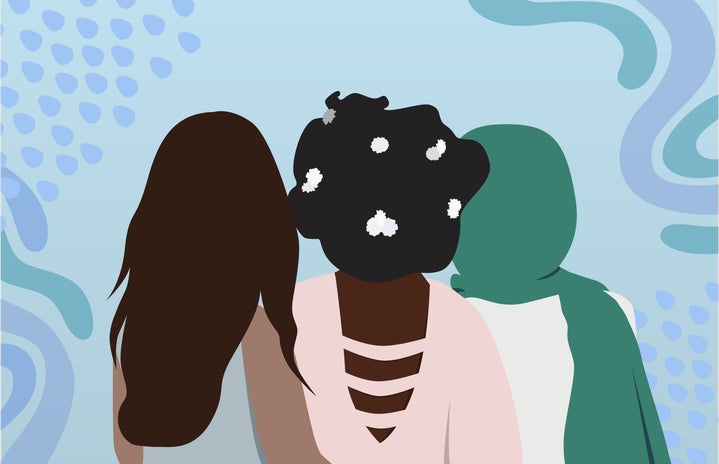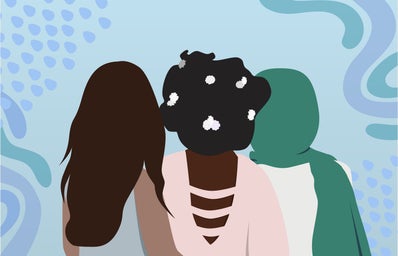I imagine that like most years, World Kidney Day, which took place on the 9th March, passed most people by this year without a second thought. This year’s theme – ‘Kidney Health for All – Preparing for the unexpected, supporting the vulnerable!’ – is particularly poignant, with reports of dialysis patients unable to afford heating in their own homes due to the cost-of-living crisis. The sobering fact that kidney disease is the tenth most common cause of death worldwide is something we should all pay attention to, and is a cause deeply personal to me.
It would be fair to say that being diagnosed with Nephrotic Syndrome in May 2005 as a consequence of a still unknown autoimmune disease heavily shaped the trajectory of my life, and made me into the young woman I see before me in the mirror. Like Jekyll and Hyde, I have no idea who I would really be without my kidney disease: would I be less anxious, less cautious, less pessimistic, less critical? Would I use humour to mask my discomfort in the same way? For example, when reflecting upon the fact that I was diagnosed eighteen years ago, my primary realisation was, “Oh shit, guess my Nephrotic Syndrome can now legally drink in the UK!” Incurable and rare – affecting approximately one person per 30,000 people per year – Nephrotic Syndrome is managed through taking powerful medication daily, such as steroids, diuretics, blood pressure controls and immunosuppressant drugs or undergoing kidney biopsies or intravenous monoclonal antibody infusions (two infusions, two weeks apart, lasting between four-six hours repeated from six months – few years apart). The lifelong/long term symptoms are characterised by proteinuria (high levels of protein in the urine), hypertension, low blood albumin, fluid retention, weight gain, blot clots, edema of the eyes, abdomen, feet and face (hence my chipmunk cheeks and frequent bloating) and tiredness (no shit sherlock – you’d want a nap after all that!) My lifelong symptoms thus far have been: chronic fatigue, migraines, a fixation with my sodium intake in case of a relapse (I apologise to Italians for not salting my pasta water and to my nephrologists for not being able to break my cheese and onion crisp habit), increased desensitisation towards blood tests or needles, paranoia any time I get a cold that it’ll develop into something even worse as it typically does, testing my urine daily for increased protein, and obsessing over fitness due to the unhealthy body image I developed from fluid retention and childhood weight gain. Mental problems I encounter include the fear that my future partners or employers won’t accept the toll of my condition, dread that I’ll pass this on to my future children, a constant fear of rejection in friendships after spending my first years of primary school in hospital, the ridiculously high academic standards I hold myself to because I’m privileged enough to have an education, and the feeling of inadequacy when I need to rest and miss out yet again on social activities with friends. Need I go on?
Though I could drone on and on about the various physical ailments chronic kidney patients put up with and the absolute exhaustion we feel every single bloody day, instead I want to raise awareness of the impacts this diagnosis has on a person’s mental health, through the saddening but unsurprising statistics produced by Kidney Research UK’s survey for World Mental Health Day last year. 67% of individuals have reported experiencing symptoms of depression, 36% can’t fully take care of their physical health because of mental health problems, and 27% of those surveyed have considered self-harm or suicide as a result of their kidney disease. These worrying numbers symbolise the trauma of living with the mental toll of a chronic, often invisible, illness. Sadly, 68% of those surveyed reported that they are not being offered mental health support or can’t even gain access to these services. Sadly, as someone who has been diagnosed with both anxiety and depression in recent years – though the symptoms have been present arguably since my childhood diagnosis – I honestly believe from personal experience that these figures are likely higher. Individuals like myself whose condition is finally stable convince ourselves that we are undeserving of support. We deny our trauma, explain it away as “just a bit of a shit time”. We survived, and just have to move on and do whatever it takes to never be at that stage again, always resulting in repression. We aren’t entitled to be anxious, depressed or suicidal, because as we are consistently reminded – albeit mostly by the well-intentioned – we are lucky to be here. We cannot be ‘reckless’ with our precious bodies because doctors and nurses strived to keep us alive, and so we develop a punitive complex any time we make a mistake. For me, it’s the anxiety-ridden hangovers where I berate my young adult self for drinking at the same level as my healthy friends. How dare I engage in the behaviours that many of us make in our formative years?
Although I was lucky to be offered access to counselling by my first doctor in paediatrics, aged nine I sadly didn’t grasp the gravity of how traumatic it was being told as a four-year-old girl that it wasn’t likely I would make it past my tenth birthday, and if I did then I would be on a transplant. The idea that I needed counselling felt like an insult. I had coped just fine by myself, thank you, and why must I be told how I should cope with it? Of course, I wasn’t coping; merely suppressing, but that revelation didn’t occur until a decade later through therapy, where I can happily say that I now finally admit and acknowledge to myself that a childhood in hospital was traumatic. For years I felt that because my condition couldn’t be seen, that despite its official recognition as a disability, I wasn’t actually disabled, even though its symptoms regularly impact my life. Asking for extensions on deadlines at school or university felt unjustified. Undeserved. The necessary extended period of rest and recuperation to survive and ensure that my condition did not worsen from burnout equalled to laziness in my twisted mindset. Not remembering key information about my condition or memories of hospital isn’t because I was ‘too young’ as I often justified to myself; rather, repression as a coping mechanism to painful memories of my kidneys not exactly being kind-neys. No-one talks about the repercussions of what happens when you don’t die. The burden you carry as you berate yourself for any mistakes you make: the same mistakes any silly twenty-something makes growing up. You are on borrowed time; you can’t afford to make mistakes.
However, I must stress that I am one of the lucky ones. My condition is stable, I haven’t relapsed since 2015, and my hospital check-ups have become much more infrequent. The introduction of antidepressants to my regular kidney medication has certainly been a difficult adjustment: a necessary one though, as the 36% figure is one I am unfortunately all too familiar with. Depressive episodes generate a vicious cycle in which we cannot take care of ourselves as we forget to eat properly, exercise, drink enough water and even take life-saving medication. To be frank, my progress would have been faster and more impressive without the depressive episodes impacting my sleep and ability to function like a ‘normal’ human being. Without the burn out and numbness, my blood pressure wouldn’t have skyrocketed due to neglecting medication. Without the intrusive thoughts and feeling so helplessly out of control, I wouldn’t have justified neglecting medication due to the belief that I couldn’t be dependent on medication. I needed to regain control since everything else around me was in chaos.Thankfully, with the help of therapy today I can see through these unhealthy behaviours. My eighteen years have made me who I am: the loving family, the friends who have been my rock, the unsupportive partners juxtaposed with the supportive partners who showed me what I actually deserve, and the dedicated team of NHS staff who work so tirelessly and are still underfunded and demonised by our government. Yet, 68% of chronic kidney patients, appallingly, cannot say the same as me. When will mental health support for us chronically ill individuals be readily accessible? And when will the interlinking nature between physical and mental health be finally recognised?
Written by: Amelia Craik
Edited by: Uta Tsukada-Bright


